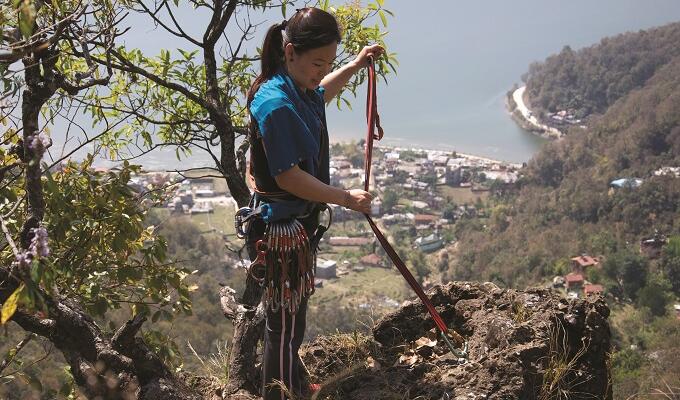
Making community-based tourism shine where it matters
Evelyn Seltier of International Trade Forum talked with Jeanette Scherpenzeel of CBI in the Netherlands to find out how community-based tourism in Myanmar can make a difference for the country and its economy
The Centre for the Promotion of Imports from developing countries of the Netherlands, or CBI for short, is working in several Asian and African countries to increase sustainable tourism and connect tour operators to the European market. CBI and the International Trade Centre are no strangers to working with each other – since 2014, the two organizations have been reinforcing Myanmar’s sustainable tourism market under the Netherlands Trust Fund. They now collaborate on the Inclusive Myanmar Tourism Project 2018-2021.
Jeanette, what is CBI’s approach to sustainable tourism?
Just like ITC, CBI focuses on small business tour operators and enabling a good business environment for them. More specifically, we train them to improve their business practices and meet European Union (EU) market trends and requirements. We are specialized in the EU tourism market and have an extensive network of sector and institutional experts. Moreover, we believe that you need the country’s commitment to achieving sustainable tourism that lasts. That is why we also work with governmental institutions such as ministries to improve service delivery, reduce export obstacles, and encourage public-private dialogue for better coordination, alignment and cooperation between actors in the tourism sector.
You are focusing on community-based tourism. Why?
It leads to more significant social and cultural insights. It also helps local communities become aware of the commercial and intellectual opportunities their culture has to offer to visitors. For example, in post-conflict Myanmar, community-based tourism plays a vital role for stability in the region. It encourages contact between the tens of different local tribes and tourists. Most importantly, the profits benefit the entire community.
What are the main challenges when working in this field?
First, tour operators lack market information and analytical skills to find their competitive edge. The critical question is: what makes you special? Many find it hard to identify their unique selling point. As this should be the basis of their strategy, CBI provides advice during this critical phase.
Second, linking their business to markets in Europe. This is something we help with, for example, by providing online fact sheets to find buyers, organizing roadshows in Europe, and inviting them to tourism fairs. We also use the certification system Travelife to offer sustainable tourist packages (see page 20). We learned to focus on a limited number of selected companies instead of big numbers to make sure we make a difference.
Third, an enabling business environment. Tourism associations lack organization among themselves. That is why we support business support organizations to improve the quality of their services and extend those more broadly among companies and members. We assist them in creating digital marketing, a national marketing strategy, a system for market information dissemination and peer-coaching as well as training tour operators.
You mentioned digital marketing. How important is it?
The key to developing any tourism sector is online and digital marketing. CBI provides training, guidance and implementation support. Indeed, niche marketing is essential as it leads to differentiation. Otherwise, there would be numerous tour operators selling the same experience and thus overcrowding the market. See, for instance, our Gems of Kenya strategy.
Another example is our support to Nepal after the earthquakes in 2015, which led to a decrease in tourist visits. To reverse the idea of Nepal no longer being safe, we supported the Nepal Tourism Board and national tour operators in setting up NepalNOW.org along with a social media campaign.
How does ITC’s work complement yours?
The beauty of our cooperation lies in how we complement each other. CBI reinforces ITC on the national level with digital marketing and strengthening associations, while ITC reinforces CBI on the regional level. More specifically, ITC is the expert in developing new community products and services across the whole supply chain, down to the local fisher on the beach. At the same time, CBI offers access to the European market to sell these new products. We both are flexible and go for the most effective solution, which is essential to have an impact. You miss opportunities if you do not work together.
For example, at a recent roadshow in Stockholm, CBI had 14 Myanmar tour operators show the products ITC developed, followed by meetings with Swedish tour operators. All participating tour operators own the Travelife label, which is a reliable marketing tool in the Swedish niche market. CBI needs the new products developed by ITC to attract the Swedish buyers, and ITC needs the CBI roadshow to market those products. Win-win.



